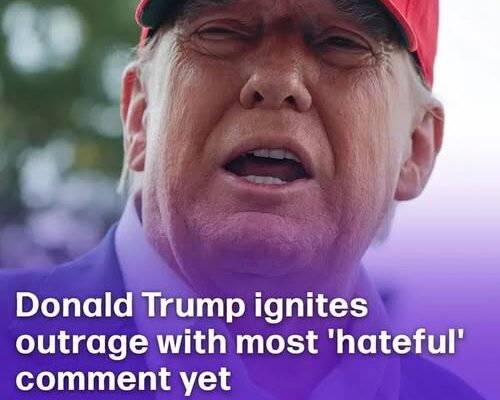On July 3, by a razor-thin margin of 218 to 214, President Donald Trump’s controversial “One Big Beautiful Bill” narrowly cleared the House, sparking heated debate across the nation.
Supporters hailed the bill’s sweeping tax cuts, increased defense spending, and border security measures as major wins. Yet critics warned of its costly consequences for social programs, immigration rights, and the environment — concerns amplified by its potential to add trillions to the national debt.
The tension boiled over when Trump, speaking in Des Moines, Iowa, ignited fresh outrage with a sharply divisive remark:
“They hate Trump, but I hate them too. I can’t stand them at all, because I think they despise our nation,” he said, referring to Democrats.
The president’s blunt words triggered a firestorm on social media, where many condemned the statement as unpresidential, hateful, and juvenile — arguing that the nation’s leader should unite all Americans, not deepen partisan divides.
Financially, the bill extends Trump’s 2017 tax cuts, which mainly favored corporations and the wealthy, by roughly $4.5 trillion. Middle-class taxpayers see some benefits, but Medicaid faces over $1 trillion in cuts, and new work requirements for healthcare and food assistance threaten to leave up to 12 million people uninsured by 2034.
Meanwhile, about $45 billion is earmarked for border infrastructure like fencing, and $100 billion will fund detention centers and ICE operations. Another $150 billion is slated for military projects.
Experts warn this legislation is a short-term political victory with serious long-term costs — projecting an increase of $3 to $4 trillion in the national debt over the next decade.
Trump’s incendiary rhetoric and the bill’s narrow passage highlight the deep political fractures shaping America’s future.
